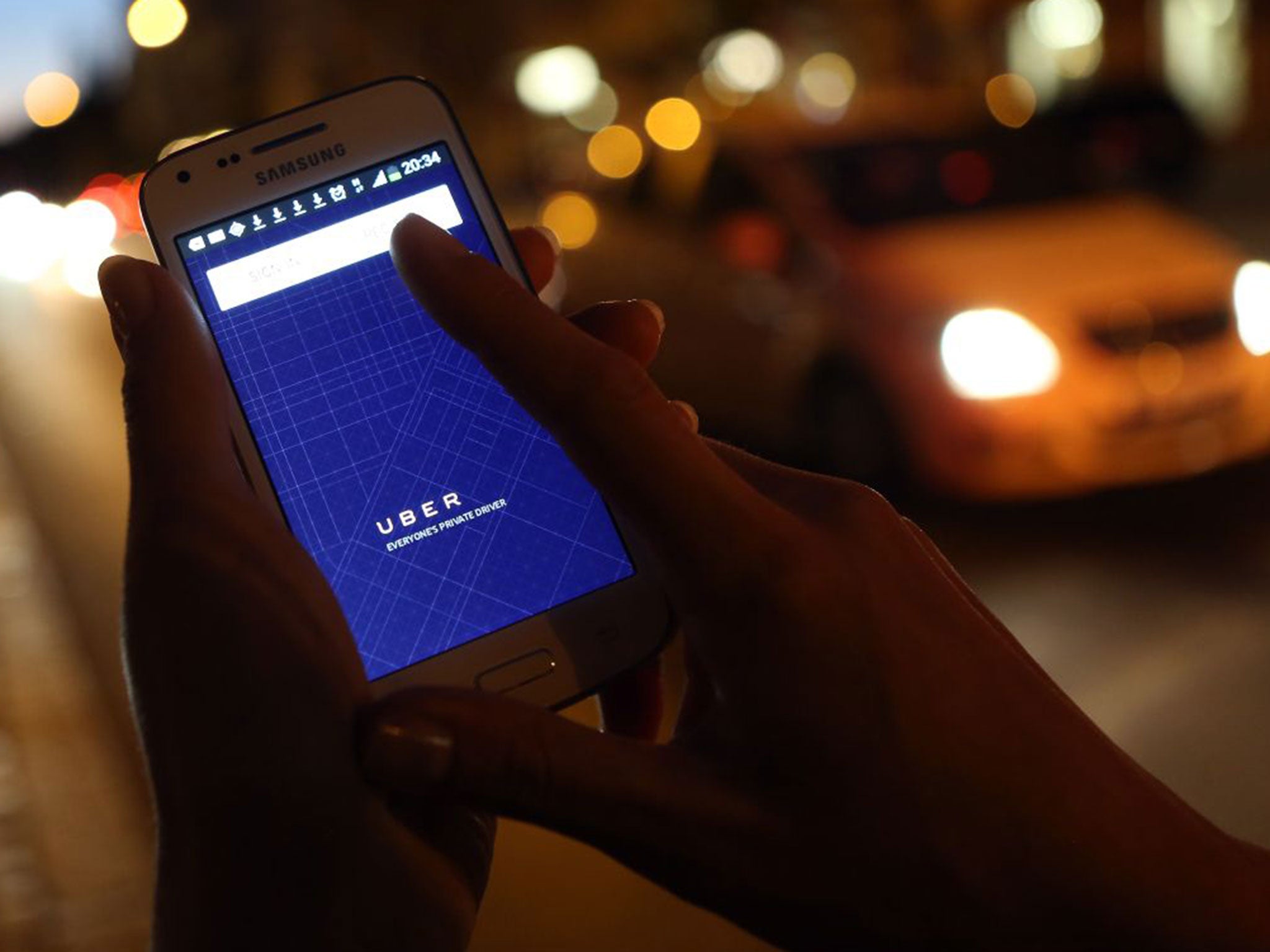Uber Alles no more? The first cab app off the rank runs into traffic
The taxi-hailing tech firm has a higher valuation than General Motors. But there’s trouble in China and competitors are beginning to get organised too. Is the shine coming off the world’s most valuable start-up?

Your support helps us to tell the story
From reproductive rights to climate change to Big Tech, The Independent is on the ground when the story is developing. Whether it's investigating the financials of Elon Musk's pro-Trump PAC or producing our latest documentary, 'The A Word', which shines a light on the American women fighting for reproductive rights, we know how important it is to parse out the facts from the messaging.
At such a critical moment in US history, we need reporters on the ground. Your donation allows us to keep sending journalists to speak to both sides of the story.
The Independent is trusted by Americans across the entire political spectrum. And unlike many other quality news outlets, we choose not to lock Americans out of our reporting and analysis with paywalls. We believe quality journalism should be available to everyone, paid for by those who can afford it.
Your support makes all the difference.Uber, the world’s most highly valued start-up, is at a crossroads. The San Francisco-based mobile cab-hailing company has in less than seven years become a household name, amassing millions of users globally and more than a million drivers (or should that be “servers”?). It is now one of the world’s biggest car companies by market value.
Yes, you read that right. Loss-making Uber is now reportedly worth more than car-making giants Ford, General Motors, Honda, BMW, and now even Volkswagen – thanks to some stock market turmoil and a dose of emissions tests cheating.
But founder Travis Kalanick has a tough decision to make. Does he keep raising hundreds of millions of dollars or start to turn Uber from a start-up into a sustainable, profitable business?
“You can get your butt kicked by others who are raising more money and buying market share,” he explained this week in an interview. “If I don’t participate in the fundraising bonanza, I’ll get squeezed out by others buying market share.”
Last week, LetterOne, the investment vehicle of Russian oligarch Mikhail Fridman, became the latest to back the business, injecting $200m (£140m) of fresh cash in a deal said to value Uber at comfortably more than $60bn.
LetterOne said the latest cash injection would help Uber to expand in emerging markets, but did not confirm whether it would use its local nous to boost Uber’s reach in Russia. There, the market leader is web firm Yandex, which has its own cab-hailing app, while Israel’s Gett also has a larger chunk of the local market. Other countries where Uber has been investing heavily – which, in tech, tends to mean haemorrhaging money – include China, where Mr Kalanick admitted to burning through $1bn a year.
It recently signed a deal with Guangzhou Automobile, which invested in its subsidiary Uber China, under which its drivers will use the Chinese company’s cars. It also has a partnership with Chinese web services company Baidu.
Uber’s biggest rival is Lyft, another San Francisco-based start-up whose financial backers include General Motors, the high-profile US investor Carl Icahn and Chinese e-commerce giant Alibaba.
Last year, Lyft struck a deal with the Chinese ride-sharing service Didi Kuaidi, which has the largest market share in the People’s Republic and is also backed by Alibaba. It signalled the start of an alliance between Uber’s rivals to challenge its pole position.
Shortly after, Lyft teamed up with India’s Ola and GrabTaxi, which is popular in Singapore, Malaysia, Indonesia and Thailand. The deal means users of these apps can hail cabs from drivers for any of the other apps.
Uber has cracked the developed world, but proving harder are emerging markets and places where it does not have the “first-mover advantage” it enjoyed in the US. And as well as competition, another risk for the business is reputation. Uber has repeatedly hit the headlines for the wrong reasons – over incidents involving its drivers, which are not technically Uber employees. Its background checks were also criticised last year by attorneys in California for allowing murderers, sexual offenders and thieves to become drivers.
Last August, meanwhile, leaked documents revealed the rate at which Uber was burning through its huge cash pile. In the second quarter of 2014, it lost $108.8m, almost twice the deficit of the whole of the previous year.
The story went viral, but Uber responded in typically tongue-in-cheek fashion: “Shock, horror, Uber makes a loss,” its statement read. “It’s a case of business 101: you raise money, you invest money, you grow (hopefully), you make a profit and that generates a return for investors.”
Using that life cycle as a guide, Uber appears to be somewhere between stages two (invest) and three (grow).
So Mr Kalanick’s strategy clearly remains “user growth over profits” – a philosophy adopted by most app developers, which need to become popular before they can even think about profits, and rely on funding from venture capital firms and wealthy individuals. It looks likely that losses at Uber will continue to rise for the foreseeable future.
A stock market listing beckons to enable Mr Kalanick and his generous backers – who are said to have ploughed in $9bn to date – to cash in on the success of his hit software.
Historically, Wall Street is sceptical of a loss-making business’s huge valuation. But Uber’s investors include the likes of Goldman Sachs. So the question is not whether it will be a hit on Wall Street, but whether it fends off competition before it decides the right time to float. A few months either way could make a difference of billions of dollars.
Join our commenting forum
Join thought-provoking conversations, follow other Independent readers and see their replies
Comments